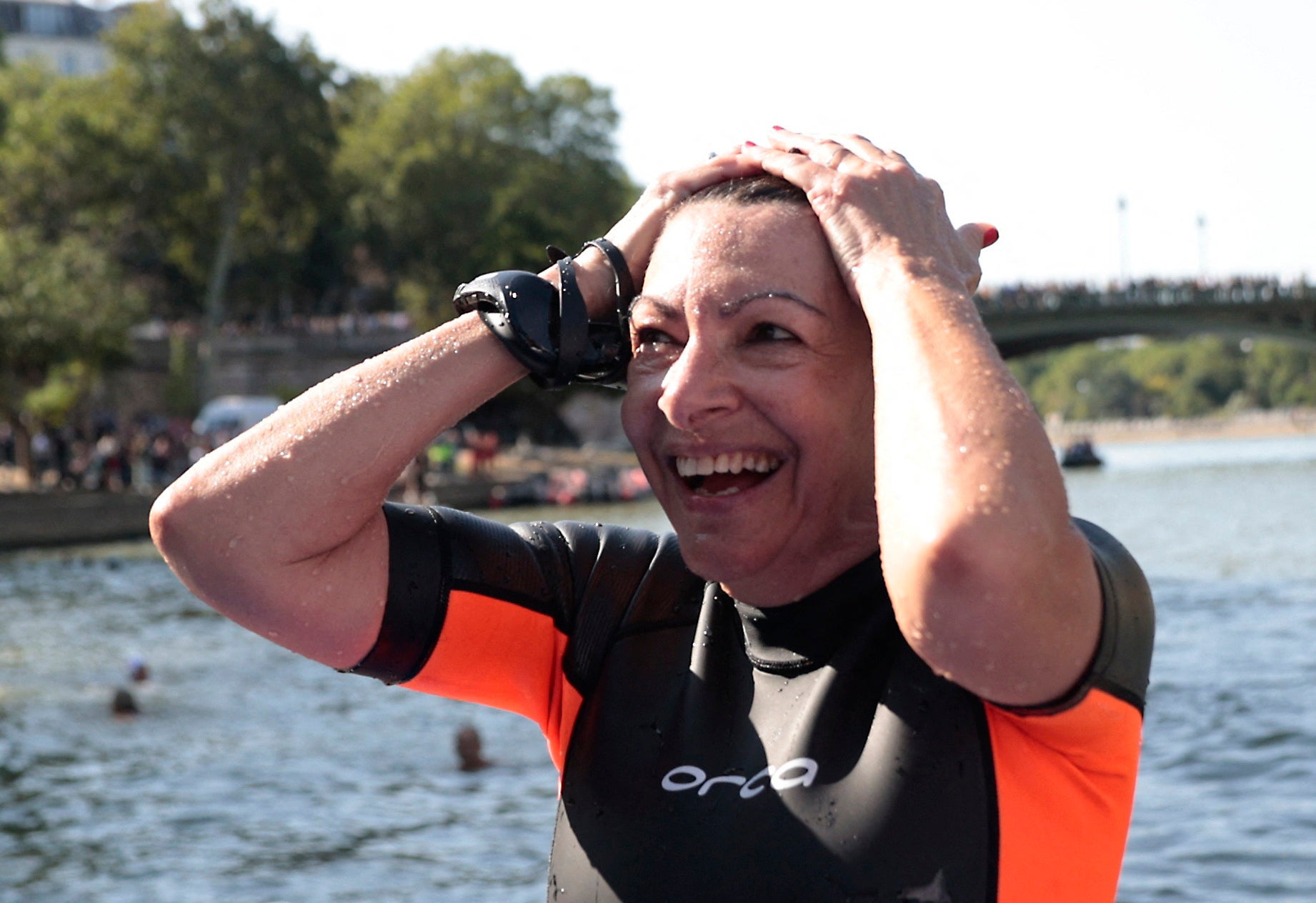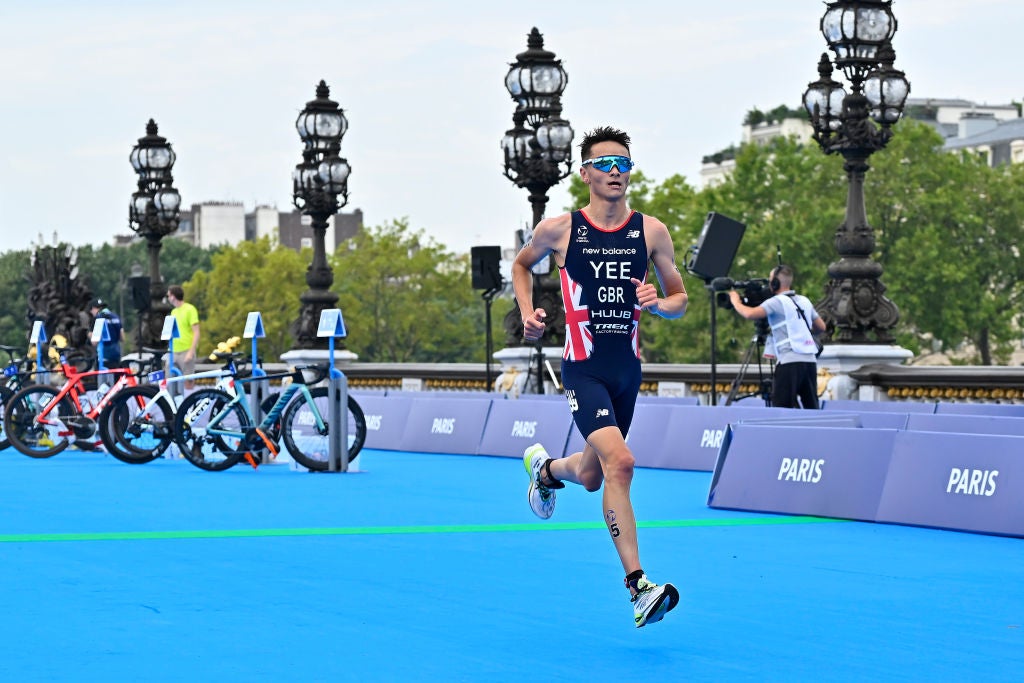Olympic triathlon farce is the inevitable result of Paris 2024’s £1bn gamble
Comment: The ambition to host open-water swimming in sight of the French capital’s iconic landmarks created a race against time to clean up the Seine – and the race is lost

Your support helps us to tell the story
From reproductive rights to climate change to Big Tech, The Independent is on the ground when the story is developing. Whether it's investigating the financials of Elon Musk's pro-Trump PAC or producing our latest documentary, 'The A Word', which shines a light on the American women fighting for reproductive rights, we know how important it is to parse out the facts from the messaging.
At such a critical moment in US history, we need reporters on the ground. Your donation allows us to keep sending journalists to speak to both sides of the story.
The Independent is trusted by Americans across the entire political spectrum. And unlike many other quality news outlets, we choose not to lock Americans out of our reporting and analysis with paywalls. We believe quality journalism should be available to everyone, paid for by those who can afford it.
Your support makes all the difference.“We know that there’s going to be some E coli exposure, so I just try to increase my E coli threshold by exposing myself to a bit of E coli in day-to-day life,” American triathlete Seth Rider said this week, in an actual quote from an actual Olympian. “And it’s backed by science. Proven methods. Just little things throughout your day, like not washing your hands after you go to the bathroom.”
In what has become one of the more bizarre stories of these Olympic Games, professional athletes are upping their intake of faecal bacteria for marginal gain. Rider’s meticulous preparation may yet be of no use: on Tuesday morning he would have woken at around 4am ready for the Olympic triathlon event only to discover that it had been postponed by 26 hours because the Seine failed to meet hygiene levels required for swimming.
It is a mess that has long been on the horizon. Scientists have been running daily checks for months and have found the Seine too polluted for competitive racing for most of the year, as rainwater constantly washed wastewater into the river. The Paris mayor, Anne Hidalgo, put off her Seine swimming stunt for as long as politically possible until eventually taking a dip earlier this month, and even then, levels were measured unsafe later that day.

A dry July helped to pass clean five of the seven days before the Games, but hygiene levels were always on a knife edge in the build-up, and the image that comes to mind is of frazzled organisers refreshing screens while praying to the god of weather apps that the storm forecast for the opening ceremony would pass. Instead, the heavens opened, and practice sessions had to be cancelled.
Cleaning up the Seine was a legacy goal built into Paris’s persuasive bid proposal for a green Games. The city spent £1bn on a giant water tank and a new sewage network to collect polluted water during rainstorms, but the ambition to host swimming in the river was one built on hubris – you cannot undo years of environmental damage with money and a slick PowerPoint presentation.
It is not uncommon for triathletes to contend with unclean water and occasional sickness, but they expect more at the Olympics. The men’s triathlon is now scheduled for Wednesday morning straight after the women’s event, though more checks will need to be done. Tuesday is hot and dry, at least. In the meantime the river has become the butt of every joke in Paris: on Italian TV, a commentator described the coffee on offer at the swimming venue as like “water from the Seine”.
For the triathletes, like Britain’s gold hopeful Alex Yee, their preparation has been disrupted by the chaos. Family and friends are now frantically finding ways to source tickets to tomorrow’s event. At the time of writing, there was still the very real possibility that the triathlon could become a duathlon, rendering one-third of the athletes’ preparation pointless, countless hours grinding lengths through the winter months gone to waste. Rider could have washed his hands after all.

The sight of a duathlon would be deeply embarrassing for Paris 2024 and the consequence of the risky game the city has played. Open-water swimming could have safely taken place elsewhere, like Cergy to the northwest of the city where there is a lake of more controllable size and scope. Instead, organisers wanted their athletes to swim against the backdrop of the Eiffel Tower, to cycle up the Champs-Elysees and run to the Grand Palais.
It points to an inescapable truth about the Olympics, a mega-event where political aims trump sporting ones. The reason for hosting is never out of a love for fencing and judo, nor is it for any financial reward. Hosting the Olympics is a display of soft power, a chance to prance and parade and fan out your plumage to the world.
The route’s announcement last April trumpeted Paris 2024’s “goal of showcasing sports and athletes in the capital’s most beautiful settings”. Someone, either in the organising committee or more likely in the French ministry of sport, decided that this was a good idea. They convinced World Triathlon that it could be done. It was a plan made on the back of pride over pragmatism, of spectacle over sport.
The broader goal of a clean Seine is admirable. But it is also true that it shouldn’t require the incentive of an imminent sports event to pursue that goal. The city gave itself a near-impossible race against time, like a procrastinator with a deadline. Now that deadline has passed, and even if the swimming events go ahead, Paris has missed the moment with the whole world watching.
Join our commenting forum
Join thought-provoking conversations, follow other Independent readers and see their replies
Comments